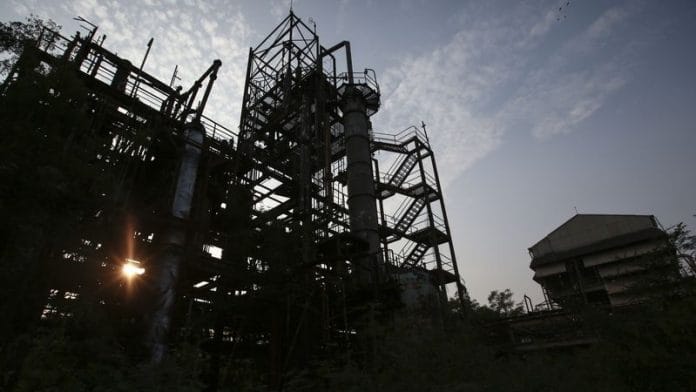Bhubhaneshwar: Indian authorities said on Thursday they had completed moving toxic waste from the site of the 1984 Bhopal gas leak disaster, which killed more than 5,000 people, to a disposal facility where it will take three to nine months to incinerate.
In the early hours of Dec. 3, 1984, methyl isocyanate gas leaked from a pesticide factory owned by American Union Carbide Corporation poisoning more than half a million people in Bhopal, capital of the Indian state of Madhya Pradesh.
Twelve leak-free containers carrying 337 metric tons of toxic waste for incineration reached the Pithampur plant 230 kms (142 miles) from Bhopal on Thursday amid heavy security, Swatantra Kumar Singh, the director of Bhopal gas tragedy relief and rehabilitation department, told Reuters.
A trial run for the disposal of 10 metric tons of waste was conducted in 2015 and the disposal of the remaining 337 metric tons will be completed within three to nine months, the state government said in a statement.
Singh said the trial run for the disposal of waste conducted by the federal pollution control agency found emission standards to be in accordance with prescribed national standards.
Singh said the process of disposal is environmentally safe and will be done in a manner which cannot harm the environment of the local ecosystem.
However, Rachna Dhingra, a Bhopal-based activist who has worked with survivors of the tragedy, said the solid waste after incineration would be buried in a landfill and will cause water contamination and result in environmental concerns.
“Why is the polluter Union Carbide and Dow Chemical not being compelled to clean up its toxic waste in Bhopal,” Dhingra said.
Built in 1969, the Union Carbide plant, which is now owned by Dow Chemical, was seen as a symbol of industrialisation in India, generating thousands of jobs for the poor and, at the same time, manufacturing cheap pesticides for millions of farmers.
(Additional reporting by Saurabh Sharma in Lucknow; writing by Shanima A; editing by Sudipto Ganguly and Michael Perry)
Disclaimer: This report is auto generated from the Reuters news service. ThePrint holds no responsibility for its content.
Also read:






